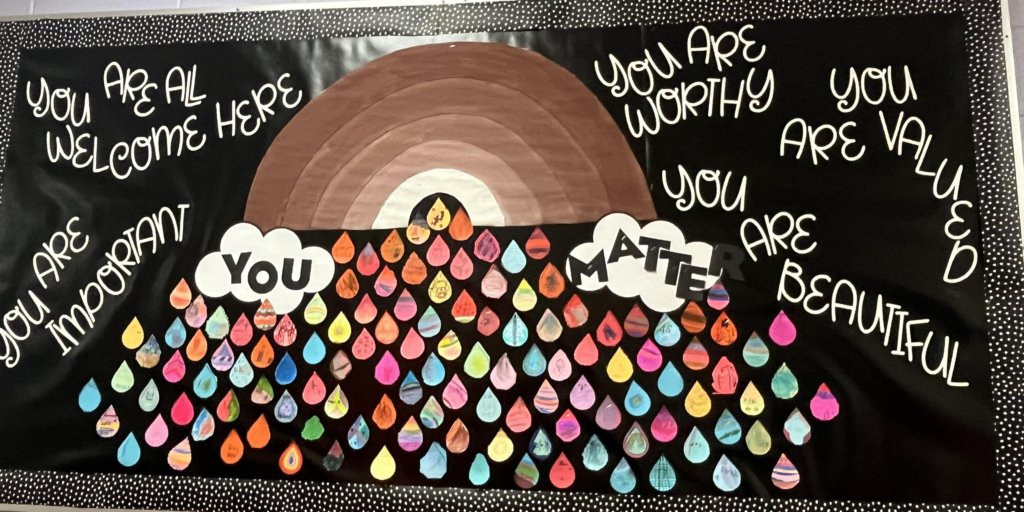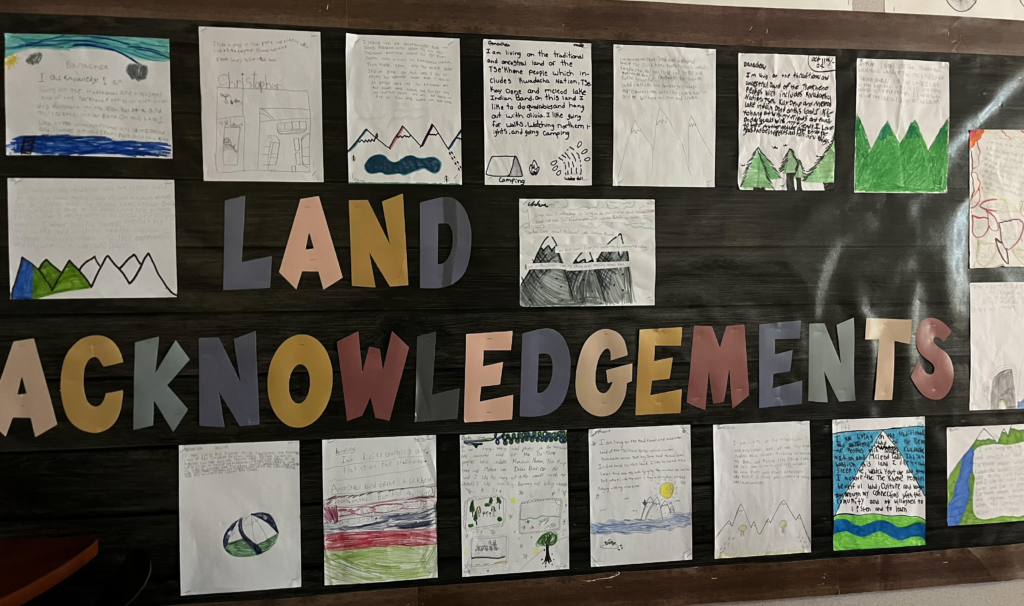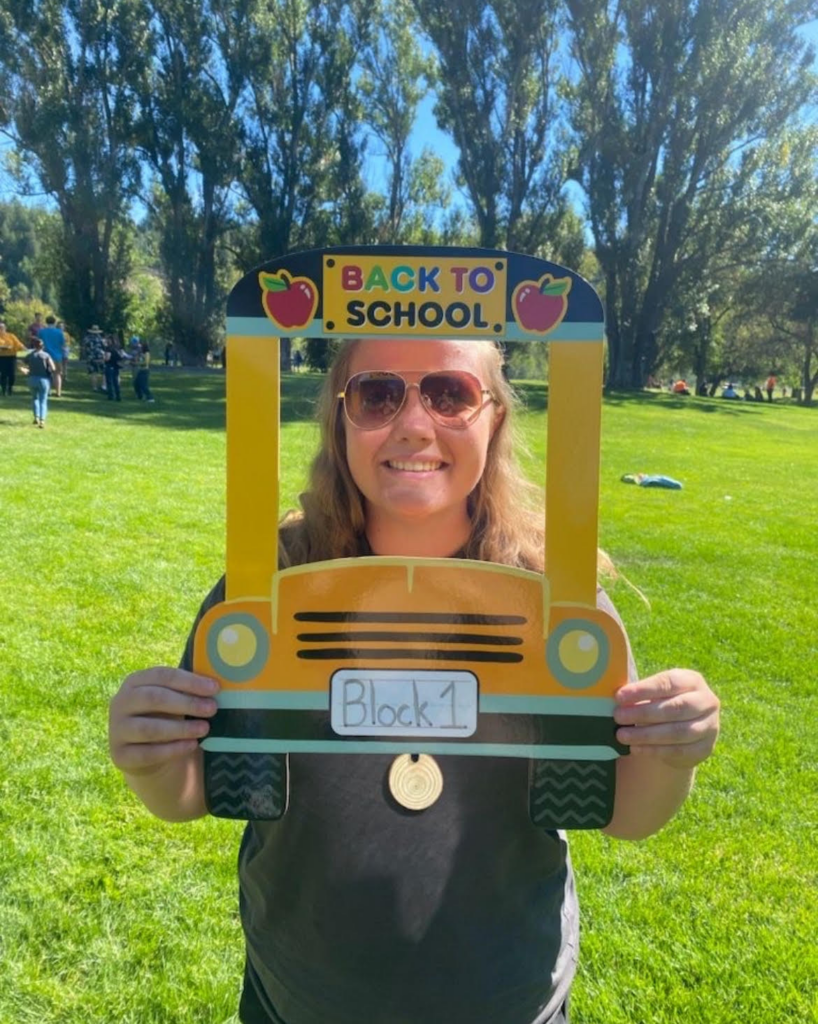What I Learned in Education 394!
On 23 November 2024 by paigeunger With 0 Comments
- Uncategorized
The two pictures included in this blog post come from classrooms during my observational practicum experiences. These are ways I have been inspired by Education 394 to incorporate what I have learned into my future classroom as a teacher! Featuring my first day of school at the end 🙂

- BC Curriculum- I have learned in this course that the BC curriculum is complex and has many layers. Understanding the entirety of the BC curriculum will take time, practice, and energy! This class has excited me about how I am going to implement the BC curriculum in my classroom and the many ways you can lesson plan with the curriculum. The BC curriculum is an open book that is ready to be turned into whatever I am passionate about teaching to my kids.
- Place-Based Learning- There is no better way to learn about local contexts than by leaving the classroom and getting out into the community. Learning about who you are and where you come from promotes many different skills in students and empowers students to be creative and learn more about where they are and why it is important.
- Lesson Planning- Lesson planning can be done starting from the top with big ideas, or from the bottom (the lesson itself) and working up. Lesson planning as a teacher is one of the most important skills. I have also learned the importance of being specific and planning for assessment. Choose one big idea and one First Peoples principle for a lesson and work from there.
- Land-Based Learning- Especially living in Canada, land-based learning can be connected to every big idea, core curriculum, and content within the BC curriculum. The land is a powerful teaching tool that can work as another teacher! Land-based learning is valuable for teaching Indigenous ways of knowing. Bringing students outside for their learning is incredibly beneficial to their physical health, confidence, and building connections with the world we live in.
- Professional Standards- The professional standards for BC educators are the driving aspects of what makes a good teacher. These are the standards that we are expected to follow within and outside of schools. I love these standards because they powerfully demonstrate how to be a good role model to children in schools, and guide educators in following safe and ethical ways of teaching and communicating with kids and families.

- Assessment- Formative and summative assessments are very different from each other and both can be used simultaneously. Some of the main ideas I learned from this course are that formative assessment can be done all the time and can be as simple as observation. Summative assessment happens less often but does not have to be in the form of a final product. Some of the negative worries or ideas I had about assessment have been debunked and I look forward to learning more in future courses!
- First Peoples Principles of Learning- The First Peoples principles of learning, although required, are a beautiful way to incorporate First Peoples learning into every aspect of education. Western education has historically been traumatic for Indigenous peoples in Canada, and this is a way to begin dismantling colonialism in the classroom. I am excited to bring Indigenous ways of knowing into everything I do as a teacher in every subject and grade level that I teach.
- Resources- As a teacher, it is important to know where, what, and how you can access resources to grow myself as an educator and provide more opportunities to students. Our class trip to the Prince George Public Library highlighted how easy it is to find resources that can develop my professional abilities as a teacher.
- Truth and Reconciliation- As a non-Indigenous educator in Canada, I deeply respect standard 9 and recognize the importance of truth and reconciliation. This course has further driven my willingness to build relationships with Indigenous peoples and incorporate the First Peoples Principles into my teaching. Honoring Indigenous peoples’ pasts, presents, and futures is something I hope to do every day of my life and inspire others to do as well.
- Who I am as a Teacher- Something I had not thought about much coming into the program is who I am as a person, and who I want to be as a teacher. I have many personal values and experiences that makeup who I am, and I am so excited to bring these into my philosophy of education. This course specifically has asked me to reflect on those values and how I hope to incorporate them into my future careers!
